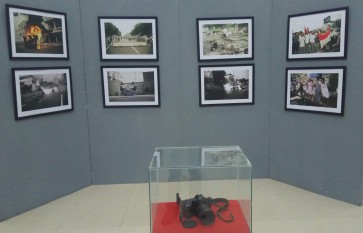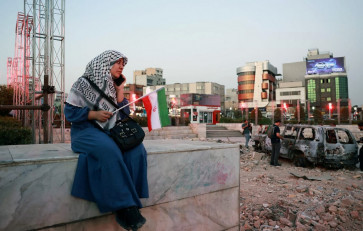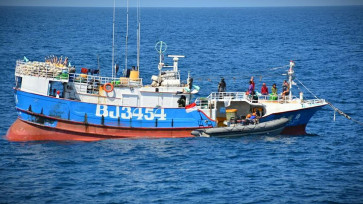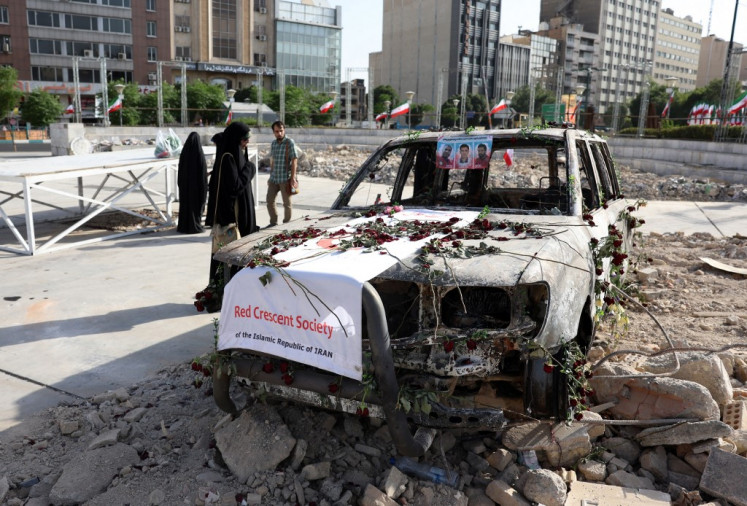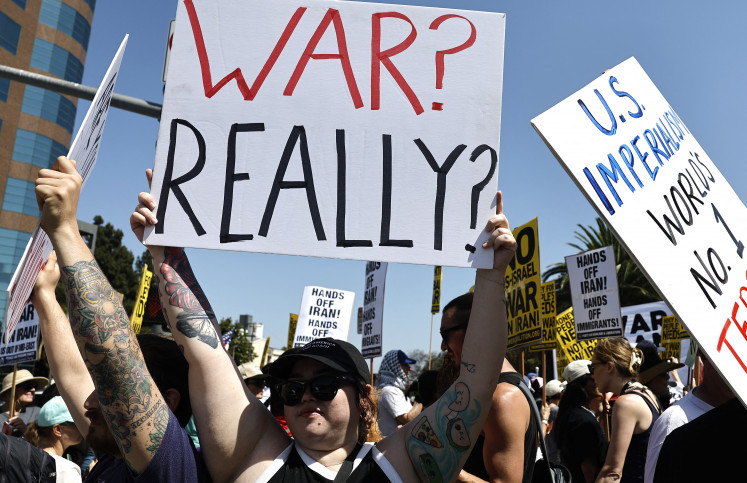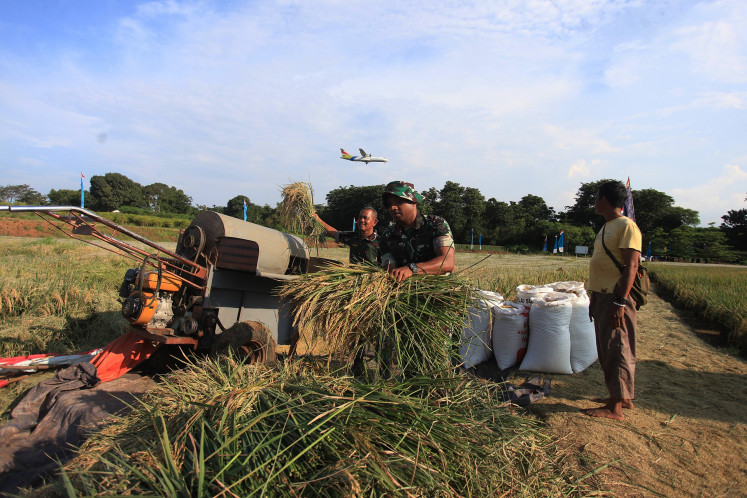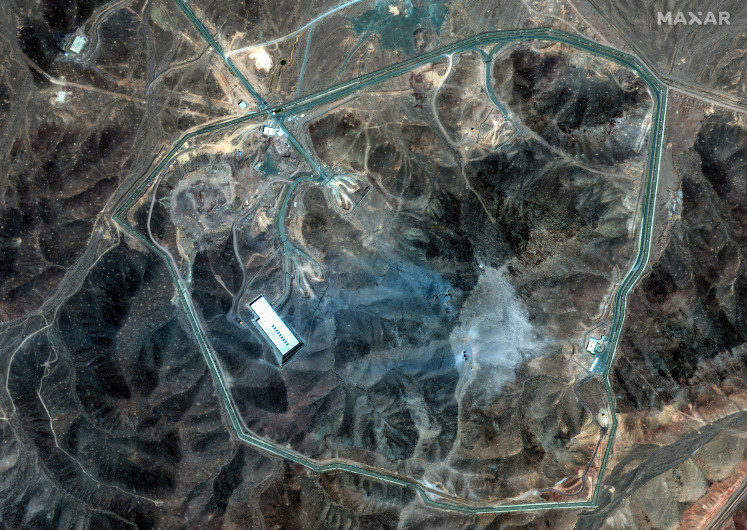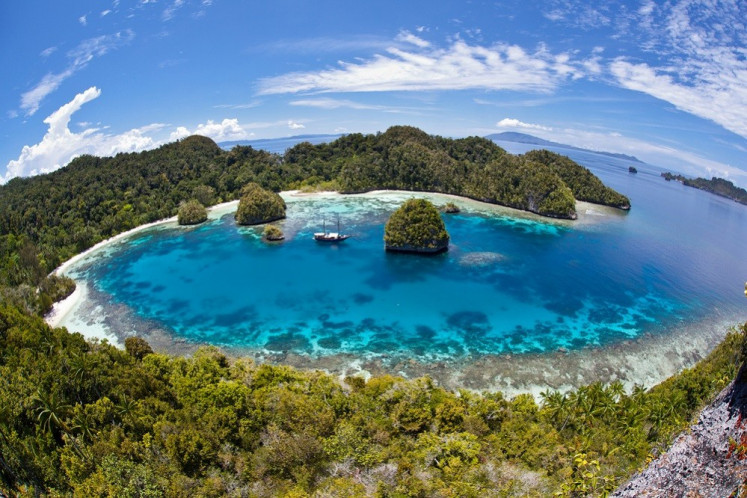Popular Reads
Top Results
Can't find what you're looking for?
View all search resultsPopular Reads
Top Results
Can't find what you're looking for?
View all search resultsNew age - old perspective? Beyond the New Order's mental legacy
Although in 1998 the regime officially ended, the power of its former elites and its mental legacy continues to this day. The New Order’s conservative approach to addressing the issue of a PKI or communist revival still strongly influences the government and society.
Change text size
Gift Premium Articles
to Anyone
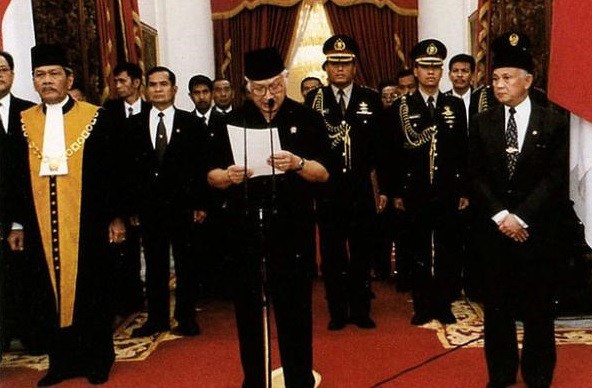 President Soeharto announced that he was resigning as President of Indonesia at the Merdeka Palace, Jakarta on May 21, 1998. (Kompas.com/-)
President Soeharto announced that he was resigning as President of Indonesia at the Merdeka Palace, Jakarta on May 21, 1998. (Kompas.com/-)
T
he fear of the revival of communist ideology and the banned Indonesian Communist Party (PKI) is groundless and unreasonable. President Joko “Jokowi” Widodo’s desire for communism to be handled has been blown all out of proportion, and been used to justify a string of sweep operations and confiscations of books discussing communism, the Sept. 30 movement (G30S) and 1965, or biographies of leftist figures in Indonesian history.
Publishers who sell critical and progressive books have been questioned by intelligence officers. Gramedia, one of Indonesian largest publishers, issued a policy to temporarily take books related to 1965 tragedy off the shelves. The most pathetic moment was the interim head of the National Library (Perpusnas) conveying that he fully supported the censorship of leftist books as the New Order did.
Seizure and destruction of books is a suppression of ideas and freedom of speech. Moreover, the books that were the target of the raids were serious academic texts, not tools of communist propaganda as alleged.
For example, one of the books that was targeted is a work by Hermawan Sulistiyo, Palu Arit di Ladang Tebu (Hammer and Sickle in the Cane Field), an adaptation of the author’s dissertation at Arizona State University. In this book, Sulistiyo investigates the massacres that occurred in Jombang and Kediri in 1965 and 1966.
From the confiscation of books, it can be concluded that the rationale behind the raids remains unclear, as both the military and police apparently cannot distinguish between academic research and blatant propaganda.
Indeed, the on-and-off crackdown on books accused of containing elements of communism has never been grounded in research. In 2009, for example, the Attorney General’s Office banned an academic book published by University of British Columbia historian, John Roosa, Dalih Pembunuhan Massal, Gerakan 30 September dan Kudeta Suharto (Pretext for Mass Murder The September 30 Movement and Suharto’s Coup d’ Etat ). Even though the distribution of the book was prohibited in Indonesia on the grounds of being communist propaganda, the book has been widely discussed in many academic forums and is being reviewed in various journals.
The issue of the resurgence of communism, in fact, was a New Order manipulation to strengthen the regime’s grip on power and boost its popularity.
Although in 1998 the regime officially ended, the power of its former elites and its mental legacy continues to this day. The New Order’s conservative approach to addressing the issue of a PKI or communist revival still strongly influences the government and society.
The New Order mindset about the 1965 tragedy, constructed through propaganda in the media, museums and education sector, has proven that it can outlive the regime itself. Many people react to the issue of the revival of the PKI without a clear and critical perspective. To date, the fear of the resurgence of the PKI still exists, although the party was destroyed more than 50 years ago.
Reviving the PKI would be a futile move given that the 1965 tragedy left a wound in Indonesia’s collective memory.
Communism as we know it today has lost its enchantment following the tearing down of the Berlin Wall and the collapse of the Soviet Union.
Members of the elite, who were raised with the New Order mindset still have a strong influence on institutions in the so-called ‘reformation era.’ The conservative worldview inherited by these elites stands in sharp contrast to today’s politics, which demand a progressive approach to the 1965 case and other human rights tragedies in the past.
Scholar Ariel Heryanto (2016) states that the recurrence of PKI peril should be analyzed in relation to the conflict among elite groups in the government. The issue of the revival of communism has reappeared at the same time that the government took the initiative to organize a symposium on 1965. It turns out that not all political elite groups welcome the initiative.
Moreover, the 1965 symposium initiative annoyed some conservative elites, who are worried about the wave of curiosity to discuss the 1965 tragedy. Public curiosity in ferreting out the truth of the 1965 incident by reading books, attending seminars and film discussions have been accused of being ‘neo-PKI’ efforts to revive the PKI and brainwash the younger generation.
We are living in a new era, but the state’s point of view is still old. We live in an age that demands critical thinking, yet in fact, conservative thinking still haunts this nation.
How long will this situation last? Will the New Order mindset last for decades, until the generation that lived under the New Order are replaced by a completely new generation, without the original sins of the past?
Time will tell us to be wiser in looking into the past. That does not mean we have to wait without any efforts to ease the burden of our past and walk together to face the future. Many other countries can make peace with their past and hold their heads up to future. Why can we not be like them? ( dmr/dan )
***
Wildan Sena Utama is a historian who obtained his master’s degree from the Institute for History, Leiden University.
---------------
We are looking for information, opinions, and in-depth analysis from experts or scholars in a variety of fields. We choose articles based on facts or opinions about general news, as well as quality analysis and commentary about Indonesia or international events. Send your piece to community@jakpost.com.

